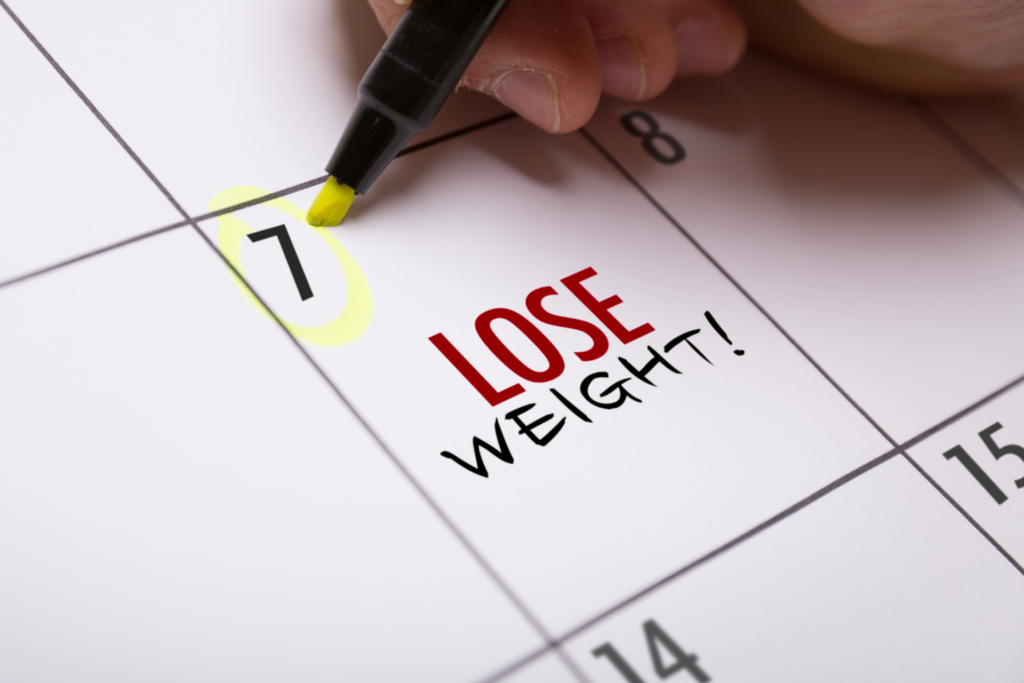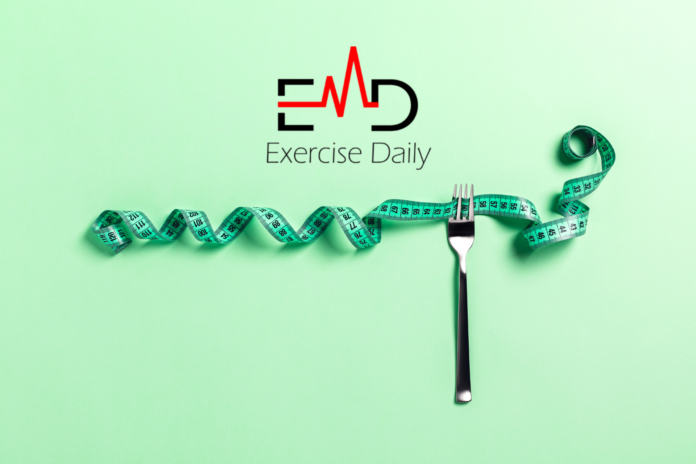Table of Contents
Exercise Daily – Recently, a lot of people asking about why they are losing inches but not weight.
When you’re seeking to lose weight, you’ll likely weigh yourself. Your weight isn’t simply a number; it may have a significant impact on how you feel about yourself.
If you go on the scale first thing in the morning and see a lower number than the previous day, you may feel better about yourself. If it’s higher, your day may start off on the wrong foot.
But what does your weight truly represent, and how beneficial is it for keeping track of your weight loss? Finding out the answers to those questions might offer you a whole new perspective on your scale.
If you’re aiming to lose weight, you could be keeping track of your progress on a scale.
If that’s the case, finding out you’re not losing weight, even if you see non-scale clues like your clothes fitting looser or the need to tighten your belt, maybe discouraging and disheartening.
Note: Measure your weight with Exercise Daily’s Ideal Weight Calculator.
This article examines why you may be losing inches but not weight, as well as possible solutions.
Losing Inches But Not Weight – Possible Reasons
If you are confused that why you are losing inches but not losing weight, then read these possible reasons behind it.
You’re Gaining Muscle Mass

Your muscles are your greatest buddy if you want to seem fit, handsome, and in perfect shape, or what is commonly referred to as “toned,” and you don’t want to continue losing them – on the contrary, it’s a good idea to start building some more.
Even though it’s a little more difficult, especially if you’re new to exercising, that’s attainable even when you’re eating in a deficit.
It’s a good idea to include some type of strength training in your fitness routine rather than relying exclusively on cardio to build muscle. Lifting weights or performing bodyweight exercises is a great place to start.
Furthermore, if you get enough protein, the keto diet might actually help you lose muscle mass.
If you start to notice that your clothing is looser and you’re dropping inches but the scale doesn’t move, that’s great news: it implies that your body composition is steadily changing and you’re shedding fat while also developing muscle.
Hormones (for Women)
Reproductive hormones can be a reason why you are losing inches but not weight and indeed, these hormones have a big impact on how much water you preserve, and they’re also responsible for a lot of the weight changes you experience during your monthly cycle.
As a result, rather than weighing oneself regularly, we recommend weighing yourself once a month during the same week of your cycle.
When you compare your weight from the first week of your cycle to the weight you had just before your period, you’ll get a highly misleading impression of where you are in terms of outcomes.
Instead, over a longer period of time, compare how much you weighed during the first week of your cycle.
If you walk on the scale every day, bear in mind that variations are totally natural, especially throughout the week of your menstrual cycle (before, during, and after).
Thyroid Disease
Thyroid disorders, particularly hypothyroidism, can cause you to retain extra water and feel bloated.
If you’re experiencing additional signs of thyroid illness, such as fatigue, weakness, increased susceptibility to cold temperatures, hair loss, depression, or extremely dry skin, you should consult your doctor and have a thyroid test performed.
If you don’t have any other symptoms and the only thing that bothers you is that the scale isn’t moving but you’re noticing other good changes in your body, it’s unlikely that you need be concerned.
Thyroid disorders can be a reason why your losing inches but not weight. However, before jumping to a conclusion, it’s a good idea to consult with your doctor.
Inflammation, Food Intolerances, and Allergies
Tracking your diet will help you figure out which meals you don’t handle well and which ones cause you to bloat. Bloating can cause you to retain water, making you feel fatigued, heavy, and generally unfit.
Take into account that intolerances might be subtle and difficult to detect, yet they can still affect how much water you retain and how your weight fluctuates.
For example, many people who have trouble digesting dairy may feel OK with a tiny quantity, or if they try a different form of dairy (such as goat or sheep cheese or yogurt), but anything derived from cow milk may cause problems.
Note: If you feel like you have food intolerances, please consult with your doctor before jumping to a conclusion.
Unrealistic Weightloss Goals

Having unrealistic weight loss goals is one of the major reasons behind why you are losing inches but not weight.
It takes time and effort to lose weight. It’s unrealistic to expect to lose 30 pounds and keep it off in a week.
It’s not simple, but it’s better to create reasonable objectives that allow you to enjoy the progress you’ve made without adding additional stress to your life.
Start by making a list of short-term goals that you can attain on a daily or weekly basis. They need to be consistent and precise.
Keep track of your meals, exercises, and water consumption in a notebook. Alternatively, fitness applications like Myfitnesspal and Lose it are available.
Focus on Fat Loss, Not Weight
Even so, the scale might not be the best tool for those who are just getting started with a fat-loss plan. If it isn’t assisting you in staying on track and achieving your objectives, it may be time to try an alternative method of tracking your progress.
It’s far more vital to concentrate on fat loss than it is to concentrate on your weight. When you lose body fat, you’re changing your body permanently, modifying your body composition to have less fat and more muscle.
It’s possible that when you lose weight, you’re eliminating water or even muscle. It’s tough to tell if the changes you’re witnessing are true or merely the effect of your everyday routines, hormone fluctuations, and fluctuating hydration levels.
So, we discussed the major reasons behind why you are losing inches but not weight. Moreover, please keep in mind that you must focus on losing fat and not weight.
Losing Inches But Not Weight – FAQs
Why am I Losing Inches and Not Weight?
It’s possible to lose weight without seeing a difference in your weight. When you reduce body fat while increasing muscle, you get this effect. Even if your weight stays the same as you lose inches, this is an indication that you’re on the correct track.
Why do I Look Slimmer But Weigh the Same?
Because dense muscular tissue takes up less space than fat, you may weigh the same (or even more) yet seem slim than someone of comparable weight, height, and posture due to the difference in your muscle mass.
Why Am I Gaining Weight While Dieting and Exercising?
Your muscle fibers are put under strain as a result of a new training routine. Small micro-injuries, also known as microtrauma, and inflammation arise as a result of this. You may gain weight as a result of these two situations in your muscle tissue.






